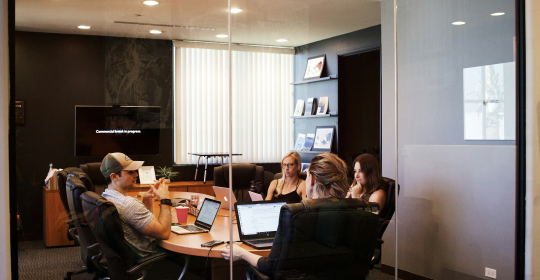This comes as new government data has revealed that 99.8%* of businesses in the UK are made up of small and medium-sized enterprises (SMEs).
The new survey conducted by 1st Formations, the UK’s leading company formation agent, has uncovered insights from 1,055 small business owners to understand how the changing business landscape is impacting hiring policies.
Small businesses are now more likely to hire staff on a freelance basis
According to the results, over half (53%) of small businesses are looking to hire staff on a contractor or freelancer basis, while just 1 in 5 (21%) plan to hire staff permanently.
Hiring freelancers lowers the overhead expenses linked to full-time staff, including benefits, workspace, and necessary equipment. This trend is a reflection of current economic uncertainty and the need for businesses to access a wider talent pool without geographical constraints amid skills shortages.
A further 1 in 10 (13%) SMEs are planning to hire staff temporarily. This was followed by hiring staff on a zero-hours contract (9%) and at apprentice level (4%).
Remote working policies continue to lead the way
Taking a closer look at workplace policies, a surprisingly large majority of small businesses are continuing to implement a fully remote working policy, with over 2 in 5 (43%) allowing their staff to work from home full time.
By comparison, 39% are opting for a hybrid set-up (2 to 3 days per week in the office), with just 18% implementing a full-time ‘return to the office’ policy.
Graeme Donnelly, CEO of 1st Formations, says:
“The results from our study have shown that a large number of SMEs are continuing to implement either fully remote work policies or a hybrid set-up, with only a small fraction pushing for a full return to the office.
The findings have also shown that small business owners are now looking to hire more staff on a freelancer or contractor basis, rather than permanently.
The theme we can see here is the need for flexibility, and adaptability - both for employers and employees.
This change reflects a fundamental reevaluation of how we view work and productivity. It is not just about where work happens; it encompasses the employee experience as a whole. Companies are now recognising that flexibility isn't necessarily seen as a 'perk' anymore. It is seen as a core expectation of the modern workforce.
The companies that succeed will be those that balance flexibility with accountability. This shift towards adaptable work arrangements is not just a temporary response to recent global events; it’s a shift in our perception of what work looks like. Today’s business owners have an opportunity here to shape the future of work, benefiting both their organisations and their employees.”






